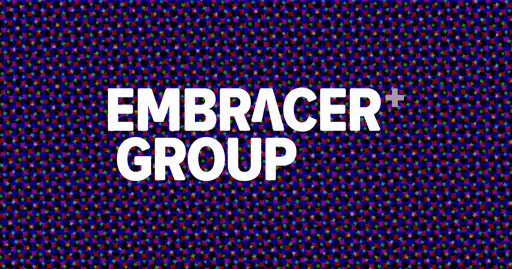- cross-posted to:
- games@lemmy.world
- cross-posted to:
- games@lemmy.world
cross-posted from: https://lemm.ee/post/35081279
Article text
Newly-restructured Swedish conglomerate, Embracer Group, will leverage AI models to bolster game production.
As noted in Embracer’s annual report, the company has adopted a new AI policy package it claims has the capability to “massively enhance” its production process by “increasing resource efficiency, adding intelligent behaviors, personalization, and optimization to gameplay experiences.”
Embracer says that, by leveraging AI, it will be able to create more engaging and immersive experiences that provide each player with a “unique, dynamic, and personalised experience.”
“We also see great opportunities for AI in game development speed, logistics and planning. Embracer Group also understands the potential risks associated with the use of AI,” adds the company, noting that “AI can also be used within areas such as logistics or HR to improve planning, decision-making, support talent acquisition and enhance employee experiences or retention.”
Embracer, which laid off over 1,500 employees and cancelled 80 projects during the past year, suggests that not using AI for “relevant tasks” will lead to it being “outrun by our competitors.”
The company concedes that adopting AI models isn’t without risk, but claims the policy will “empower” workers to help the create “more powerful experiences in the same amount of time.”
“Companies within Embracer Group that utilize AI within their operations are subject to general as well as specific laws and requirements that impact the development and use of AI. These requirements are, due to the nature of AI applications, comprehensive and require, among others, documentation, risk assessments as well as continuous updates,” reads the company’s risk assessment.
“AI may also produce unethical, biased, discriminatory or completely wrong results if it has not been properly trained, instructed or used for purposes it was not designed. Additionally, AI generated material is not patentable or copyrightable meaning we must understand how material is produced, especially by third parties, since such material may produce serious copyright or intellectual property issues with the final product.” Embracer says AI models won’t supplant human workers
Embracer states it doesn’t want to replace people with AI and is taking a “human-centric approach” to the technology–going so far as to claim it could open the door for new hires.
“It’s not just that AI enables our developers to do even more, and to become more efficient on certain tasks, it will also open up coding to a broader group of developers. Entry into the industry might be easier for individuals with disabilities who, for instance, cannot use a keyboard as easily as others,” said Embracer’s head of privacy and AI governance, Tomas Hedman.
Hedman says the company’s “risk-aware approach” means being cognizant of the pitfalls associated with AI models. That’s why, he says, Embracer must “act consciously.”
“AI is trained on historical data, which tilts in a certain direction. As a result, you can end up with imbalanced automated decision-making. Let’s say you’re building a village. If you use AI for this, depending on how it’s trained and the decisions it takes, you may end up with a village with a demography that displays some sort of imbalance,” says Hedman.
“As AI models become more powerful, we can leverage their capacity also in the creative process, for example, by identifying inconsistencies in scripts and storytelling. There will be tremendous benefits for our creative teams regarding scriptwriting, image creation, idea generation, quality control, and more. And, as models become more human-like, the interaction between players and AI-supported functions will be much more dynamic. If in a game scenario you bargain, AI can remember this the next time. That makes the whole gaming experience much more interesting and lifelike.”
Embracer isn’t the first company to espouse the potential of AI. Earlier this year, EA boss Andrew Wilson claimed 60 percent of the publisher’s development processes could soon be impacted by generative AI. Others including Sony, Square Enix, Ubisoft, and more have also begun tinkering with the tech.


